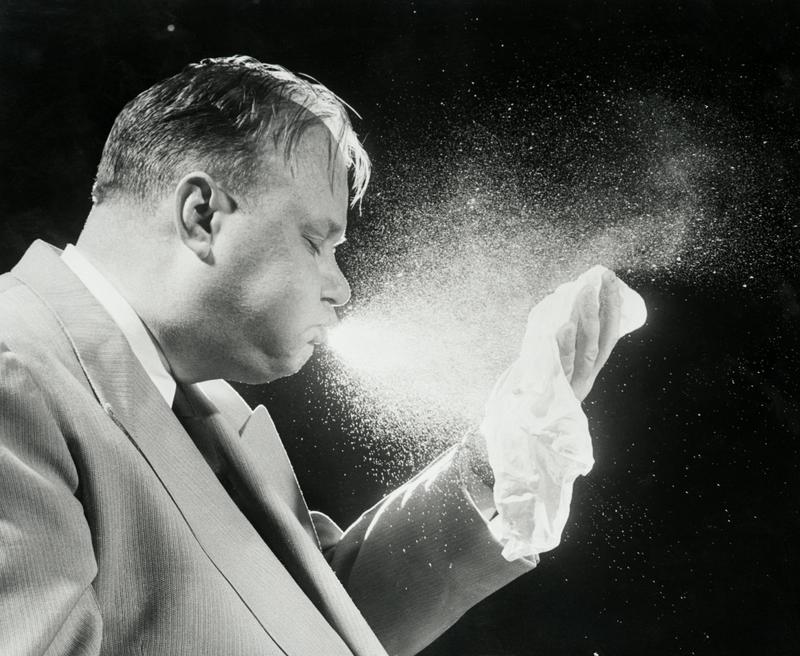Why Do We Say 'God Bless You' After A Sneeze? History Of The Pope's Decree
By | February 14, 2021

When you hear a sneeze, you probably feel compelled to say "Bless you," even if you've never spoken to the sneezer in question ever before in your life. Why? And why don't we extend the same courtesy in the event of other unfortunate bodily reactions? What makes sneezes so special?
A Pope And A Proclamation
The Roman Plague of 590 C.E. was an epidemic, probably bubonic in nature, that ravaged the city of Milan. (Just kidding, it was Rome.) About 50 years earlier, a similar outbreak in Constantinople which lasted for eight years killed an estimated 5,000 people a day at its peak, so people were understandably pretty freaked out. Not even the Pope was immune to the wrath of the disease, so the new one, Gregory I, needed to calm people down and convince them the illness could be treated through the power of prayer. On February 16, 600, he issued a papal decree ordering every good Catholic to say "God bless you" when they heard someone sneeze, which was a common early sign of the Plague, essentially as a prayer to God to aid their health and recovery. It caught on almost as well as the Plague did, and as the affliction spread across the continent, so did the gesture.

But Wait
Ol' Greg may have simply officially decreed something that had been common courtesy for some time. Bestowing blessings upon the sneezy goes back at least as far back as 77 C.E., when Pliny the Elder described not only commenting on but even saluting a person after a sneeze in his Natural History. The ancient Greeks, too, relegated the sneeze to the mercy of the heavens and either said a prayer or observance to Zeus.
The most common translation of these prayers is "to your health," so there's actually some confusion among historians as to whether they thought sneezing was a good or bad sign of health in the days before it was so closely linked to the Plague. The so-called father of medicine, Hippocrates, did believe sneezing to be beneficial in most cases, as it seemed to cure the most dreaded of all conditions: the hiccup.
Physical health aside, some cultures believed that sneezing forces your soul out of your body for a moment. They worried that during that time, the body was open and vulnerable to demonic or evil forces, so a quick nod to the gods was thought to keep one safe. Before you laugh, a large part of the world still believes your heart stops temporarily when you sneeze, so be nicer to your ancestors.

Blessings Today
Scientists still don't fully understand why we sneeze. Usually, it's the body's way of expelling foreign particles or relieving congestion, but people also can sneeze due to too much sunlight, eating chocolate, or even becoming aroused. It makes sense, then, that people in the Middle Ages—still a good few centuries away from understanding viruses, vaccination, and bacteriology—turned to religion and superstition to fill in the blanks. Once we did get a handle on germ theory, we were firmly in the habit of saying "Bless you," and breaking taboo is far scarier than demons.
Today, the miniature blessing stands more as a social norm than any kind of prayer, but that doesn't mean it doesn't serve an important function. On the one hand, sneezing can be embarrassing, and when another person acknowledges the situation as acceptable, it can ease the sneezer's anxiety. On the other hand, being sick is no fun, and saying "Bless you," even to a stranger, communicates empathy. Being polite never hurt anyone.

